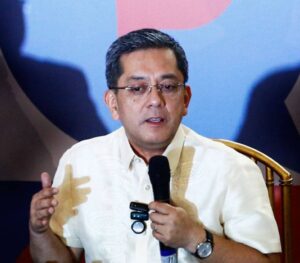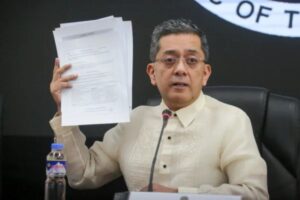MANILA, Philippines – The Commission on Elections (Comelec) has launched a high-stakes investigation into potentially illicit campaign contributions received by senatorial candidates during the recent midterm elections, revealing that four out of six implicated candidates successfully secured a seat in the Senate.

Comelec Chairperson George Garcia disclosed that the poll body is actively scrutinizing campaign finance reports to verify if certain donations received by the candidates constitute a violation of the stringent Omnibus Election Code. The key determination hinges on whether the donors are contractors holding existing government projects, particularly with the Department of Public Works and Highways (DPWH).
The 2025 Election: Four Winners Under Scrutiny
In a recent interview, Chairman Garcia confirmed the scope of the new probe focusing on the 2025 midterm elections.
“We’ve identified 26 contractors who helped national and local candidates [in the 2025 elections],” Garcia stated. He specified that six senatorial candidates received assistance from these contractors.
Crucially, Garcia told Philstar.com that four of these six senatorial candidates won their respective races in May. The Comelec, however, has not yet publicly identified the candidates or disclosed the specific amounts of the donations received.
The poll body is now awaiting confirmation from the DPWH to determine if these contributing entities were indeed public works contractors at the time of the donation. If confirmed, the contributions would directly fall under Section 95(c) of the Omnibus Election Code, which strictly prohibits contributions for partisan political activity made directly or indirectly by “natural and juridical persons who hold contracts or sub-contracts to supply the government… or to perform construction or other works.”
Severe Penalties Await Guilty Parties

The implications of a confirmed violation are severe, affecting both winning and losing candidates.
“Violation of Section 95 of the Omnibus Election Code is an election offense punishable by imprisonment of one to six years and perpetual disqualification to hold public office,” Garcia warned, underscoring the seriousness of the investigation.
This current probe is considered a matter of high public interest, especially given the recent controversies surrounding infrastructure and flood control projects. Garcia expressed hope for a swift resolution from the Comelec’s Political Finance and Affairs Department (PFAD), aiming for a decision within the month to remove doubts and provide clarity to all concerned parties.
Lingering Questions from the 2022 Elections
The Comelec’s scrutiny of campaign finance is not limited to the recent polls. The commission continues to face hurdles in closing cases related to the 2022 elections due to a persistent lack of response from the DPWH.
“For the 2022 elections, we are still waiting for the DPWH’s reply to our request for verification,” Garcia noted, adding that the Comelec has already reiterated its request to the department.
The poll body initially flagged 55 contractors who reportedly contributed to 2022 electoral candidates. Out of this substantial number, the Comelec was able to advance only one case without the DPWH’s assistance, following the admission of a P30-million contribution between one contractor and one candidate.
While Garcia initially withheld the names, he previously confirmed that the poll body would seek an explanation from Lawrence Lubiano, president of Centerways Construction and Development Inc., after Lubiano admitted during a separate congressional hearing to donating P30 million to the campaign of then-senatorial candidate Chiz Escudero. Escudero, for his part, had explained to the Comelec that he believed the donation originated from a “private fund.”
The case involving Escudero and Lubiano has been submitted for resolution to the PFAD, with a final decision expected soon. This precedent will be critical as the poll body moves forward with its broader investigations into the 2025 winners.
The Comelec’s proactive investigation serves as a stark reminder of the legal boundaries separating government contractors and political campaigns, upholding the principle that public works contracts should be shielded from political influence. The outcome of the probe involving the four sitting senators will undoubtedly have significant ramifications for the integrity of the Senate and the enforcement of campaign finance laws in the Philippines.





